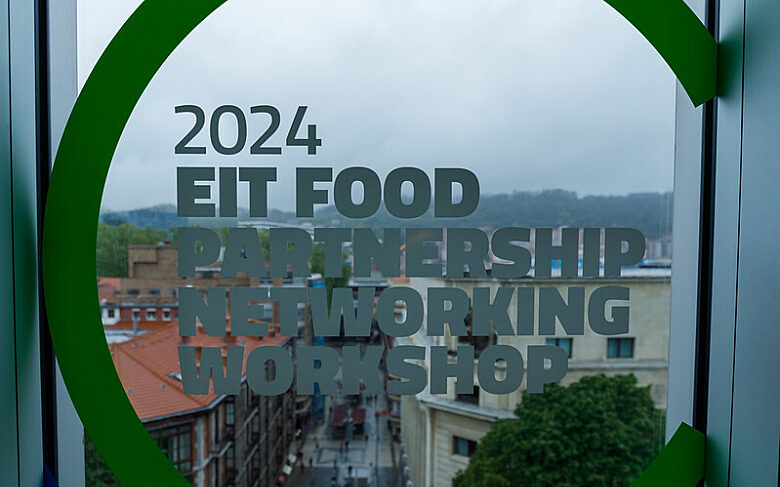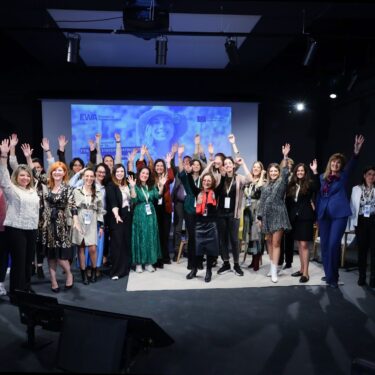The programme, which aims to transform innovative ideas into market-validated business proposals, will coach them during the coming months in the EIT Food South Europe headquarters.
The entrepreneurial ideas which have been selected, are focused on sustainable agriculture, digital traceability and circular economy. Their promoters come from Spain, Portugal, Italy and Turkey.
The European consortium, EIT Food, has selected eight innovative business ideas within the agrifood sector to participate in the Seedbed incubator. The entrepreneurship programme, which launched its invitation to participate in February, will help validate them, help them to grow and open a gap for them in the international market.
The eight innovative ideas will be coached in the EIT Food South European headquarters, in the Bizkaia Technology and Science Park, Spain. There, the Seedbed incubator will help them to transform into market-validated business proposals. The chosen ones, promoted by entrepreneurs that develop products or services in their initial stages, will participate in an intensive programme for six months, which aims to convert these projects into viable companies with a future.
In this process, universities and innovative companies associated with EIT Food will provide their experience to help mature new business ideas. At the end of the program, which will combine online and face-to-face training, the entrepreneurs will present their project, with the opportunity to obtain financing to validate it in the market and with potential clients. Seedbed is organised simultaneously in Northern Ireland, Poland, Denmark and Germany.
The entrepreneurial ideas which have been selected are focused on sustainable agriculture, digital traceability and circular economy. In addition, they are divided into three main groups: entrepreneurs who want to validate the commercial potential of their innovation, scientific entrepreneurs who want to test the commercial output of a technology or recently created companies (less than a year old).
Eight innovative ideas
Three of the ideas are focused on sustainable agriculture. The first one, Azolla Projects, is a company founded in 2020 in Girona, Spain. Its idea is based on offering farmers the possibility of increasing their profits by 'capturing' their CO2 emissions, something that also increases the safety and resilience of their farms. It prepares the users of its program to face the challenges of climate change, as well as to stop the loss and degradation of the land.
Bioprospectum, founded in 2020 in Porto (Portugal), it is also dedicated to sustainable agriculture. It creates and develops biotechnological assets from the bioprospecting of molecules and/or natural products of biodiversity, through services, consultancies and specialised scientific technologies. Its main focus is on the development of 'in silico' and 'in vitro' platforms for the identification of molecules, and it focuses on applications in the areas of antioxidants, antimicrobials, anti-inflammatories and anticancer agents for the pharmaceutical, cosmetic and food industries.
Spherico2, from Murcia (Spain), has been founded this year, 2021. It promotes sustainable agricultural practices that help tackle climate change. To achieve this, it provides a financial incentive for farmers to undertake them. The incentives are based on the calculation of their carbon 'sequestration' potential and on the issuance of associated 'Regenerative Carbon Credits'. The capital to pay farmers comes from companies that buy these credits as a way to offset their own emissions.
Also founded in 2021, is Raspberry Harvester from Lisbon (Portugal). They develop, produce, and deliver, to raspberry producers, automated harvesting systems able to harvest the fruit without human interaction. The machines resort to machine learning, computer vision, robotics, soft robotics, and data science, among others, which allows for remote control with precise data, at all times. This facilitates crop and resource management, enabling a reduced cost of higher quality fruits for the end consumer.
In the field of circular food systems, we have Biotico, which was founded in 2020 in Istanbul (Turkey). The company, in a pre-pilot stage after laboratory scale production, converts coffee waste into enzymes and reduces the operational costs by 29%. The enzymes produced prevent water and energy waste with their wide range of uses, such as in the textile, detergent, cosmetics, animal feed, food and pharmaceutical industries.
Rewow, founded in 2018 in Bari (Italy), is focused on the same area. The company valorises waste products through an innovative technology to produce circular bio-based polymers. The upcycling of waste products can produce benefits for society and the planet while creating profit, something that Rewow aims to achieve with uses like its first product, an ingredient for cosmetic formulations.
Tetis Biotechnology, from Istanbul (Turkey), is also dedicated to circular food systems. Its innovative method is able to extract high quality collagen from a number of discarded species and waste materials of some fishes on a laboratory scale. The method does not require any expensive additives and the raw material can be obtained almost free. In addition, personnel operating costs are reduced by 70% compared to current methods.
Finally, Terroir From Space (Bergamo, Italia) focuses on digital traceability. It provides a unique solution, helping winemakers make the most out of their terroir in the face of climate change. Its AI-powered solution, primarily reliant on Earth Observation data, helps winemakers optimise plantings and identify new plots based on quality-driven criteria, which ensures better wine, minimises costs and contributes to the flourishing of new viticultural ecosystems.
These projects will establish relationships with companies and key agents of the local agri-food innovation ecosystem over the coming months with the aim of advancing their commercial validation and technological development strategies. This initiative is included within the entrepreneurship strategy of the Basque Government. Several EIT Food partners are also participating, such as the universities of Warsaw, Queens and Aarhus, PepsiCo, AZTI, DIL, Grupo AN, PeakBridge, Danone and Döhle.
About EIT Food
EIT Food is the leading initiative in food innovation in Europe. It works to make the food system more sustainable, healthy and trustworthy. It is one of eight innovation communities established by the European Institute of Innovation and Technology (EIT), an organisation which is independent of the EU and was created in 2008 to promote innovation and entrepreneurship.
The consortium is made up of more than 100 entities, including key industries, leading companies in this field, startups, research centres and universities from 16 EU member states. The headquarters of the south of Europe is established in Spain (in Madrid and Bilbao) and works with partners such as: Acesur, AIA, Angulas Aguinaga, AZTI, Caviro, Consiglio Nazionale delle Ricerche, CSIC, AN Group, Granarolo, Hub Innovazione Trentino, Inalca, International Iberian Nanotechnology Laboratory (INL), Mondragon Corporation, PeakBridge, Strauss, Technion, UAM, UNITO, the University of Bologna and the Volcani Institute of Agricultural Research.
More News from EIT Food South






